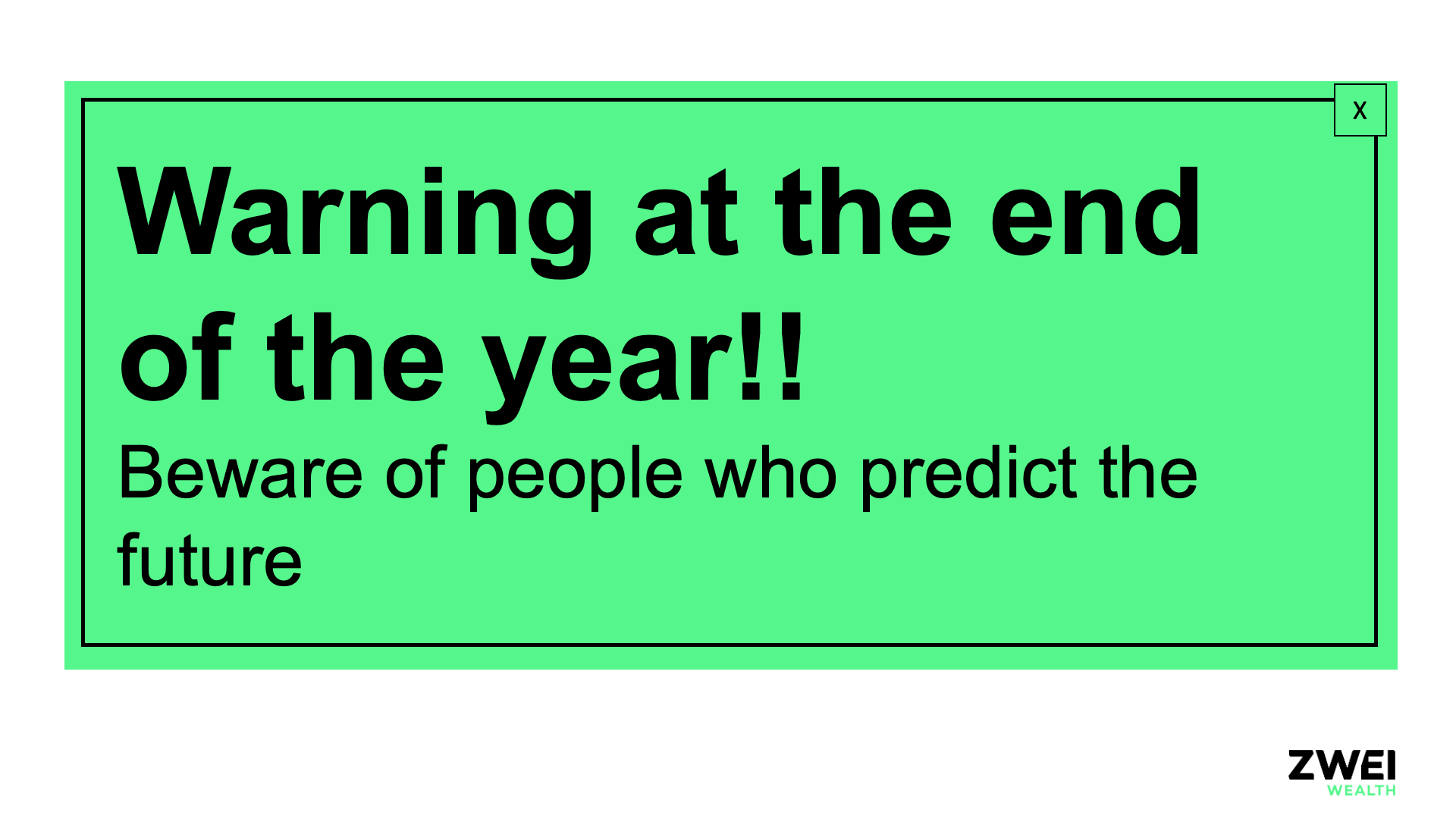Knowledge: Warning! Beware of people who predict the future
Now they are available again - the outlooks for the new year. Economists, bank representatives, asset managers and many others are taking the floor and presenting their assessments for the coming year. The contributions range from entertaining to stale. But what all of them equally fail to do is to forecast even remotely how the financial markets will develop in 2021. Disappointing? No, rather reassuring. (pm)

Every year in December we warn anew against the false hope that someone might tell them where the market 2021 is heading, whether there is a major stock market crash or inflation is rising. After all, the same still holds true for 2021:
1. Forecasts for the medium term are incredibly flawed
Anyone who reads, listens to or asks questions about the future on the financial markets should bear in mind the time horizon. Generally speaking, forecasts for the short term (approx. 3-6 months) are reasonably accurate. However, they have a major disadvantage. They are also known to other financial market participants and are already included in the market price. Accordingly, these forecasts are of little use to investors, but help them to understand what is currently happening. Forecasts for the medium term (approx. 6 months to 5 years), however, are almost impossible. If someone tells you how the financial markets will develop in the next two years - generally do not believe them. Unfortunately, this is exactly the horizon for which we would need the answers most, which is why they are so sought after. Accordingly, there is a lot of supply to meet this demand. Just because there is a lot of something, i.e. in this case forecasts, it does not make them any better. Finally, there is the long term (>5/10 years). So there are forecasts which give you some clues and which you can use as a guide.
2. The ingredients for asset management are quite simple
Investment products are complex and you need specialist knowledge to understand them. This assumption is actually not true. After all, the ingredients for managing assets are rather ordinary: Cash, bonds, shares and real estate. There are asset classes which can be used as a means of transaction and those which can be used as a vehicle for preserving value. The transactional means include cash and bonds. Money is intended to be widely accepted as a means of exchanging it for goods and to minimise fluctuations in value. Bonds are borrowed cash. They are therefore suitable for everything needed for short and medium-term transactions. There are fundamental differences in the means of storing value. For example, they are difficult to exchange. It is difficult to buy a loaf of bread from a baker with a share - and the valuation fluctuates greatly from day to day. The bread could turn out to be very expensive or cheap. Shares and real estate generally fall into the category of value preservation. And where does gold or the modern form Bitcoin stand? Actually, these cannot be properly assigned to any category and asset management can do without them quite well.
3. Volatility is only one aspect of risk
Risk management is always strongly emphasised in asset management. It is important to remember what is meant by this. After all, asset managers basically measure risk as volatility. This is appealing and above all abstract. But it is only one dimension of risk. So you should know two things. Volatility is a suitable measure of risk for the short and medium-term investment horizon. But volatility is hardly suitable for the long investment horizon. The risk of a loss of purchasing power dominates there. In concrete terms, this means that equities are much riskier than cash in the short and medium term. For the long term, however, the reverse is true. The risk of losing 15 years of purchasing power with cash is extremely high or, due to the system, almost guaranteed. In contrast, the risk of losing purchasing power over 15 years with shares is much smaller.
Conclusion: Even at the end of the year you will not find anyone who can forecast the future with sufficient accuracy. That is a shame. Or is it? Because this way, you don't have to constantly ask yourself if you are missing something. Clean financial planning, implemented by solid "craftsmen" whose work is objectively controlled. That is all it needs. But nothing less either.
Please do not hesitate to contact us at any time for questions and advice.